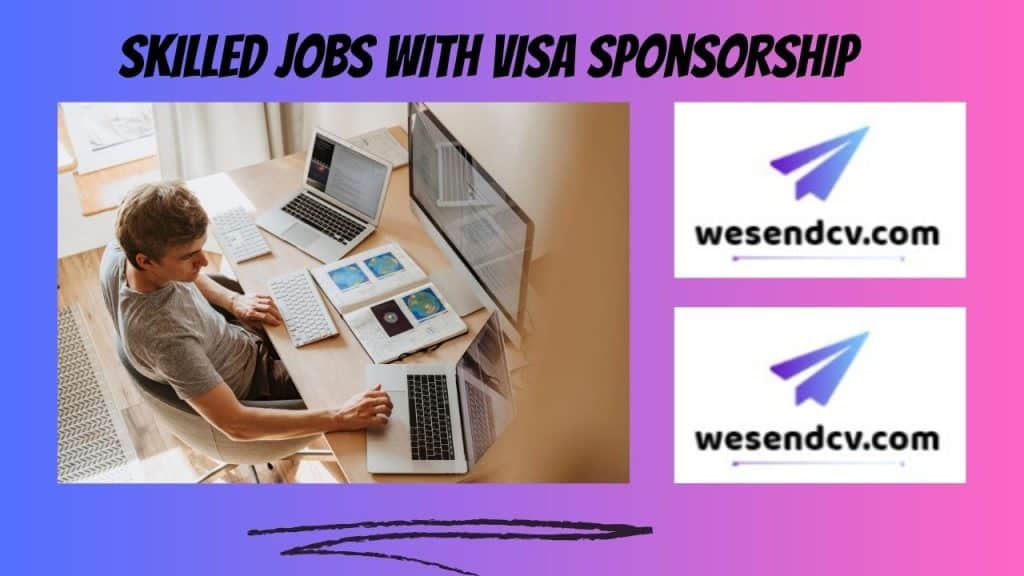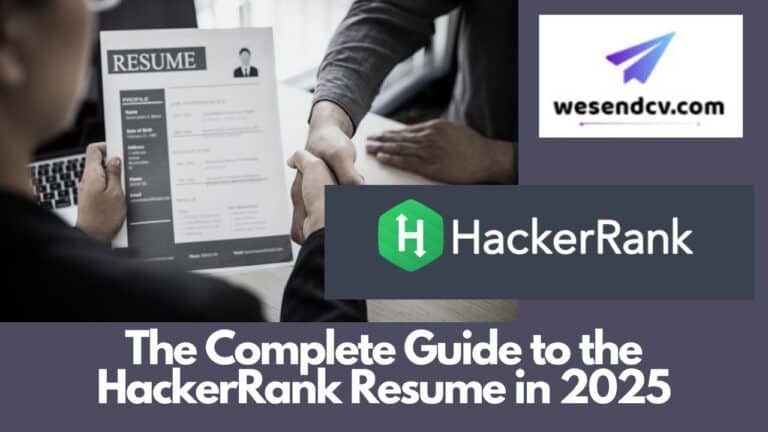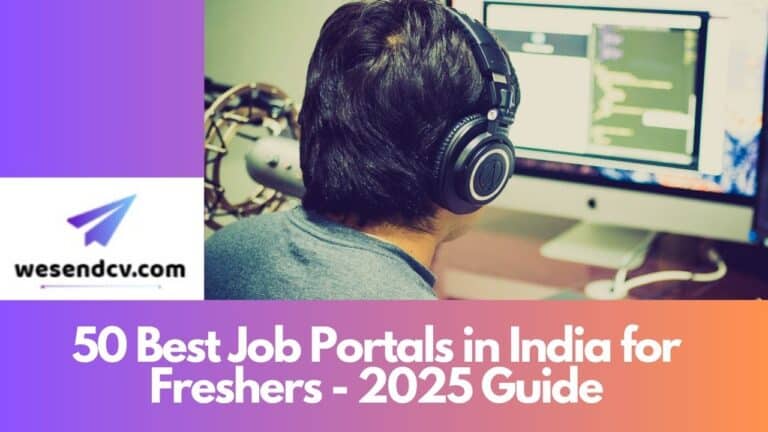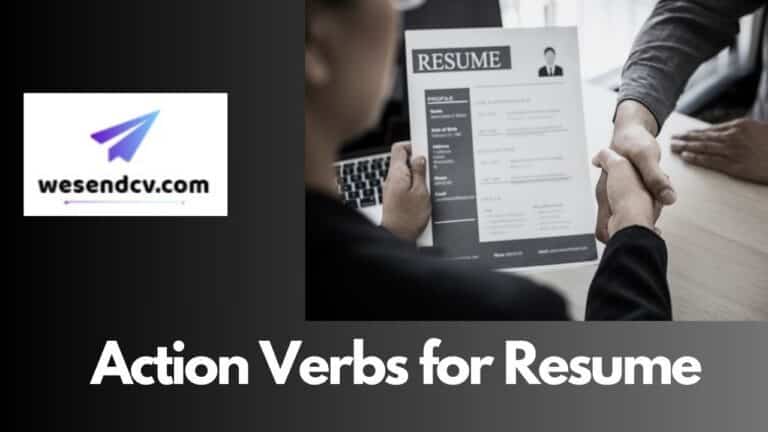Main Highlights of Content
Toggle1. Software Developer with Visa Sponsorship
Software Developer job description and requirements
Transitioning from exploring the overarching term of software developers and their crucial role in today’s tech-driven economy, let’s delve into the specific job description and requirements of a software developer.
1.1 Job Description
Software developers are the architects of the digital world. They create computer programs and applications that allow users to perform specific tasks on a computer or another device. This can range from mobile apps to complex operating systems.
Core responsibilities include:
- Developing programs: Writing and implementing efficient code.
- Analyzing user needs: Ensuring the software meets user requirements.
- Testing and debugging: Regularly fixing bugs and improving software performance.
- Collaborating: Working with other IT professionals like sysadmins, programmers, and designers.
- Maintaining systems: Updating software to enhance functionalities and fix issues.
1.2 Requirements
To excel in this role, a candidate must generally meet certain educational and technical criteria.
Educational Background:
- A bachelor’s degree in Computer Science, Software Engineering, or a related field.
- Relevant certifications can be advantageous (e.g., Microsoft Certified: Azure Developer Associate).
Technical Skills:
- Proficiency in various programming languages such as Java, Python, C++, and JavaScript.
- Experience with software development frameworks.
- Understanding of databases, backend services, and APIs.
- Familiarity with version control systems such as Git.
Soft Skills:
- Problem-Solving: Must possess critical thinking and creativity.
- Communication: Ability to explain complex technical information clearly.
- Teamwork: Effective collaboration with other team members.
Being a software developer not only a solid technical foundation but also a continuous learning mindset to keep up with fast-paced technological advancements.
1.3 Software Developer visa sponsorship opportunities
Continuing from the detailed overview of the job description and requirements for software developers, the next logical topic is to explore the visa sponsorship opportunities available for these professionals.
1.4 Sponsorship Options Available
Many countries recognize the demand for skilled software developers and offer various visa sponsorship programs to attract talent from across the globe.
Key sponsorship options include:
- H-1B Visa (USA): This is one of the most sought-after visas for software developers. U.S. companies can sponsor skilled workers for this non-immigrant visa, which allows them to work in the United States for up to six years.
- Skilled Worker Visa (UK): The UK’s Tier 2 (General) visa allows employers to hire international developers when they cannot find a suitable local candidate.
- Global Talent Visa (Australia): Aimed at highly skilled tech professionals, this visa offers a streamlined pathway to permanent residency in Australia.
- Canada’s Global Talent Stream: This program aims to expedite the visa process for high-demand tech professionals, including software developers, allowing them to start working in Canada within a matter of weeks.
1.5 Employer Sponsorship
Securing a position with a company willing to sponsor your visa is crucial. Many tech giants such as Google, Microsoft, and Amazon are known for their generous visa sponsorship policies. These companies often:
- Provide legal assistance for visa processes.
- Offer robust relocation packages.
- Provide long-term support for transitioning to permanent residency.
1.6 Applying for Sponsorship
When seeking employment, focus on:
- Highlighting your skills relevant to the job description.
- Demonstrating previous experience with notable projects.
- Networking: Engage with industry professionals and recruitment agencies.
By understanding and utilizing the visa sponsorship options available, software developers can access exciting career opportunities in global tech hubs.

2. Registered Nurse with Visa Sponsorship
Registered Nurse job outlook and qualifications
Transitioning from the diverse visa sponsorship opportunities available for software developers, let’s shift our focus to a critical sector within healthcare – Registered Nurses (RNs). Understanding the job outlook and qualifications for RNs is essential for those pursuing this noble profession.
2.1 Job Outlook
The healthcare industry continues to exhibit robust growth, with an escalating demand for skilled nurses.
Key statistics include:
- Projected Growth: The U.S. Bureau of Labor Statistics predicts a 7% growth in the employment of registered nurses from 2019 to 2029, much faster than the average for all occupations.
- Global Demand: Countries like Canada, Australia, and the UK are experiencing nursing shortages, making this profession highly sought after internationally.
- Diverse Opportunities: RNs can work in various settings, including hospitals, clinics, nursing homes, and private practices.
2.2 Qualifications
To qualify as a registered nurse, individuals must meet certain educational and professional standards.
Educational Requirements:
- Bachelor of Science in Nursing (BSN): Although some positions may accept an Associate Degree in Nursing (ADN), a BSN is increasingly becoming the standard.
- Nursing License: Pass the National Council Licensure Examination for Registered Nurses (NCLEX-RN) to obtain a nursing license.
Professional Skills:
- Clinical Competence: Proficiency in patient care, medical procedures, and using healthcare technologies.
- Communication Skills: Effective interaction with patients, families, and healthcare teams.
- Critical Thinking: Ability to make quick, informed decisions in high-pressure situations.
Continuing Education:
- Specialization: Pursuing certifications in specialized nursing fields like cardiology, oncology, or paediatrics.
- Advanced Degrees: Opportunities to advance with a Master’s or Doctorate in Nursing.
With an ageing population and an ongoing global health crisis, the demand for registered nurses is unparalleled, offering a stable and rewarding career path for those with the right qualifications and a passion for caregiving.
2.3 Registered Nurse visa sponsorship options
Building on our understanding of the job outlook and qualifications for registered nurses, let’s now explore the various visa sponsorship options available for RNs seeking to work abroad.
Sponsorship Programs
Many countries have established visa programs to attract qualified healthcare professionals, addressing nursing shortages and bolstering their healthcare systems.
Common sponsorship programs include:
- EB-3 Visa (USA): This employment-based visa allows U.S. employers to sponsor foreign nurses. It often leads to permanent residency and requires an employer job offer and a labor certification.
- Temporary Skill Shortage (TSS) Visa (Australia): This visa allows Australian employers to address labor shortages by bringing in skilled workers from overseas. The TSS visa can provide a pathway to permanent residency.
- Long-Term and Short-Term Visit Work Visa (New Zealand): Nurses can be sponsored by healthcare institutions under this visa to work in New Zealand either temporarily or long-term, with potential pathways to residency.
- Tier 2 (General) Visa (UK): Designed for skilled workers, this visa enables UK employers to hire overseas nurses when local candidates are not available.
2.4 Employer Sponsorship
Securing a position with an employer willing to sponsor a visa is a critical step for international nurses.
Benefits often provided by employers include:
- Legal Assistance: Helping navigate the complex visa application process.
- Relocation Packages: Offering financial and logistical support for moving.
- Onboarding Support: Assistance with settling into the new work environment and community.
2.5 Application Process
When applying for positions, focus on:
- Highlighting Nursing Experience: Emphasize clinical skills and patient care expertise.
- Meeting Licensing Requirements: Ensure eligibility to practice in the target country (e.g., passing the NCLEX-RN for the U.S.).
- Networking: Engage with recruitment agencies specializing in healthcare placements.
By understanding the visa sponsorship options available, registered nurses can broaden their career horizons and make significant contributions to healthcare systems worldwide.
Hire us! Our Agent Job Search For You Next 7 Days | 30 Days | 60 Days | 90 Days Remote Job Search, Onsite Job Search, Hybrid Job Search
3. Mechanical Engineer with Visa Sponsorship
Mechanical Engineer skills and experience needed
Following the exploration of visa sponsorship options for registered nurses, let’s turn our attention to another critical profession – mechanical engineering. Understanding the skills and experience required for a mechanical engineer is essential for anyone pursuing this dynamic and impactful career.
3.1 Technical Skills
Mechanical engineers apply principles of physics and mathematics to design, analyze, and manufacture mechanical systems. To excel, the following technical skills are paramount:
Core Competencies:
- Computer-Aided Design (CAD): Proficiency in software such as AutoCAD, SolidWorks, and CATIA for modelling and simulations.
- Materials Science: Understanding the properties and applications of different materials for effective design and manufacturing.
- Thermodynamics and Fluid Mechanics: Knowledge of energy systems, heat transfer, and fluid dynamics is crucial.
- Mechanics: Strong grasp of statics, dynamics, and structural analysis.
Analytical Skills:
- Problem-Solving: Ability to identify, analyze, and solve complex mechanical issues.
- Attention to Detail: Precision in drafting, modeling, and executing designs.
3.2 Professional Experience
Hands-on experience is invaluable for mechanical engineers, enabling them to apply theoretical knowledge to real-world scenarios.
Relevant Experience:
- Internships: Participating in internships provides exposure to industry practices and enhances technical proficiency.
- Project Management: Overseeing the complete lifecycle of a project from conception through to production.
- Industry Experience: Working in sectors such as automotive, aerospace, or manufacturing.
Soft Skills
In addition to technical expertise, mechanical engineers must possess strong soft skills to collaborate effectively and drive projects to successful completion.
Key Soft Skills:
- Communication: Conveying complex technical information to diverse audiences.
- Teamwork: Working collaboratively with multidisciplinary teams.
- Time Management: Prioritizing tasks and meeting deadlines efficiently.
3.3 Educational Background
- Bachelor’s Degree: A degree in Mechanical Engineering or a related field is typically required.
- Advanced Degrees: A Master’s or PhD can open doors to specialized roles and research positions.
By mastering the necessary skills and gaining relevant experience, aspiring mechanical engineers can build a solid foundation for a successful and fulfilling career in this ever-evolving field.
3.4 Mechanical Engineer visa sponsorship process
Building on the essential skills and experience needed for mechanical engineers, let’s now dive into the visa sponsorship process for those aiming to take their expertise abroad. Navigating the complex immigration landscape is crucial for securing career opportunities globally.
Understanding Visa Types
Different countries offer specific visa categories tailored to skilled workers, including mechanical engineers.
Prominent visa types include:
- H-1B Visa (USA): This visa allows U.S. companies to hire foreign workers in speciality occupations, including engineering.
- Employer Nomination Scheme (ENS) Visa (Australia): Provides a pathway for permanent residency when an Australian employer nominates the candidate.
- Skilled Worker Visa (UK): This visa enables UK employers to recruit individuals who have the skills the country needs, such as mechanical engineers.
- Global Skills Strategy (Canada): Streamlines the immigration process for highly skilled workers, including those in engineering roles.
Steps in the Sponsorship Process
Understanding the steps involved in securing a sponsored visa is crucial for mechanical engineers exploring international opportunities.
Key Steps Include:
- Job Offer: Secure a job offer from an employer willing to sponsor your visa.
- Labor Market Testing: In some countries, employers must demonstrate they couldn’t find a suitable local candidate.
- Visa Application: Submit the required documentation, including proof of employment, educational qualifications, and professional experience.
- Medical and Background Checks: Complete any necessary health examinations and background verifications.
3.5 Key Documents
The visa sponsorship process involves meticulous documentation.
Essential Documents:
- Employment Contract: Written confirmation of your job offer.
- Educational Certificates: Proof of relevant engineering degrees and certifications.
- Proof of Experience: Detailed records of previous employment and project experience.
- Professional Licensing: Certification from recognized engineering bodies, if required.
3.6 Employer Support
Employers play a crucial role in facilitating the visa sponsorship process.
Employer Contributions:
- Legal Assistance: Guiding through the legal and documentation processes.
- Financial Support: Covering visa application fees and potentially relocation costs.
- Onboarding Programs: Assisting with integration into the new work environment and local community.
For mechanical engineers, understanding and navigating the visa sponsorship process is essential for leveraging global career opportunities and contributing their expertise to innovation-driven companies worldwide.

4. Data Scientist with Visa Sponsorship
Data Scientist job responsibilities and qualifications
Transitioning from understanding the visa sponsorship process for mechanical engineers, the focus now shifts to the rapidly evolving role of data scientists. Grasping the job responsibilities and qualifications for data scientists is key for those aspiring to delve into this highly sought-after field.
4.1 Job Responsibilities
Data scientists analyze and interpret complex data to help organizations make informed decisions. Their multifaceted responsibilities include:
Core Duties:
- Data Collection: Gathering large sets of structured and unstructured data from various sources.
- Data Cleaning: Pre-processing data to ensure accuracy and completeness by handling missing values and correcting discrepancies.
- Data Analysis: Using statistical and machine learning techniques to identify trends, patterns, and insights.
- Model Building: Developing predictive models to forecast future trends and behaviours.
- Data Visualization: Creating visual representations of data findings to communicate insights effectively to stakeholders.
- Collaboration: Working closely with data engineers, analysts, and business leaders to align data strategies with business goals.
4.2 Qualifications
Data scientists need a robust combination of educational background, technical skills, and practical experience to excel in their roles.
Educational Requirements:
- Bachelor’s Degree: Typically in Data Science, Computer Science, Statistics, or a related field.
- Advanced Degrees: A Master’s or Ph.D. can be highly advantageous for specialized roles and advanced research positions.
Technical Skills:
- Programming Languages: Proficiency in languages such as Python, R, and SQL for data manipulation and analysis.
- Statistical Analysis: Strong foundation in statistical methods and theories.
- Machine Learning: Experience with machine learning algorithms and frameworks like TensorFlow, Keras, and Scikit-Learn.
- Big Data Technologies: Familiarity with tools such as Hadoop, Spark, and Apache Flink.
Soft Skills:
- Problem-Solving: Ability to tackle complex data challenges with innovative solutions.
- Communication: Effective in explaining complex data concepts to non-technical stakeholders.
- Critical Thinking: Strong analytical mindset to interpret data accurately and derive meaningful conclusions.
Practical Experience
Gaining hands-on experience is crucial for data scientists.
Relevant Experience:
- Internships and Projects: Participating in data-driven projects and internships for practical exposure.
- Portfolio Development: Building a portfolio showcasing successful data analysis and machine learning projects.
With the right blend of skills, education, and experience, aspiring data scientists can unlock a wealth of opportunities in various industries, driving data-driven decisions and innovation.
4.3 Data Scientist visa sponsorship availability
Following our exploration of the job responsibilities and qualifications for data scientists, let’s delve into the visa sponsorship availability for these highly skilled professionals. As the demand for data scientists continues to grow globally, understanding the sponsorship opportunities is essential for those seeking to expand their careers internationally.
Sponsorship Programs
Numerous countries have recognized the vital role data scientists play in modernizing industries and offer specific visa programs to attract these experts.
Popular visa sponsorship programs include:
- H-1B Visa (USA): Widely sought after, this visa allows U.S. companies to employ foreign data scientists in speciality occupations. It is non-immigrant and usually valid for three years, extendable to six years.
- Global Talent Visa (Australia): This program facilitates the recruitment of top-tier tech talent, including data scientists. It offers a streamlined pathway to permanent residency.
- Skilled Worker Visa (UK): This visa enables UK employers to sponsor skilled workers, such as data scientists, where local talent is insufficient.
- Global Talent Stream (Canada): Part of the Temporary Foreign Worker Program, this stream allows Canadian employers to quickly hire highly skilled foreign data scientists, with potential pathways to permanent residency.
Employer Sponsorship
Securing a position with an employer willing to sponsor your visa is crucial. Many prominent tech firms are known for their extensive sponsorship programs.
Key aspects to consider:
- Legal Support: Companies often provide comprehensive legal assistance to navigate the visa application process.
- Relocation Packages: Financial and logistical support for moving to the host country.
- Settling-In Programs: Onboarding and integration support to help new employees acclimate to their new work environment and community.
4.4 Application Process
Understanding the application process is critical for success.
Steps Include:
- Securing a Job Offer: Obtain a confirmed job offer from a sponsoring company.
- Documentation: Collect necessary documents, such as employment contracts, educational certificates, and proof of experience.
- Visa Application: Apply to the relevant immigration authorities, ensuring all requirements are met.
- Compliance: Stay compliant with any medical, background, and additional regulatory checks required.
4.5 Networking and Career Platforms
Engaging with specialized recruitment agencies and networking within industry communities can significantly enhance your chances of securing sponsorship.
Tips:
- Leverage Platforms: Utilize LinkedIn, Indeed, and Glassdoor to search for data scientist positions with visa sponsorship options.
- Industry Events: Attend conferences, webinars, and professional meetups to connect with potential employers and industry peers.
By understanding the visa sponsorship options available, data scientists can access numerous global opportunities, enabling them to contribute to groundbreaking projects and advance their careers internationally.

5. Marketing Manager with Visa Sponsorship
Marketing Manager role and responsibilities
Transitioning from the discussion of visa sponsorship availability for data scientists, let’s focus on a critical role in any business – the Marketing Manager. The role and responsibilities of a marketing manager are vital for driving a company’s growth and maintaining its competitive edge in the marketplace.
Role Overview
Marketing managers are responsible for developing, implementing, and executing strategic marketing plans for an entire organization or specific business units. Their role is crucial in expanding market reach, enhancing brand awareness, and driving sales growth.
Key Responsibilities Include:
- Strategy Development: Crafting comprehensive marketing strategies aligned with business goals.
- Market Research: Conducting market analysis to identify trends, opportunities, and consumer insights.
- Campaign Management: Planning, executing, and overseeing marketing campaigns across various channels, from digital to traditional media.
- Budget Management: Allocating and managing the marketing budget for maximum ROI.
- Team Leadership: Leading, mentoring, and coordinating the efforts of the marketing team, ensuring they meet their objectives.
5.1 Content Creation and Branding
Creating compelling content and maintaining a strong brand presence is integral to a marketing manager’s role.
Key Duties:
- Content Strategy: Developing and overseeing content marketing initiatives to ensure brand consistency and audience engagement.
- Brand Management: Ensuring that all marketing activities align with the brand’s voice, values, and identity.
- Digital Marketing: Utilizing SEO, SEM, social media, email marketing, and other digital strategies to enhance online visibility.
Customer and Stakeholder Engagement
Marketing managers play a pivotal role in customer relations and stakeholder communication.
Engagement Activities:
- Customer Insights: Gathering and analyzing customer feedback to continuously improve marketing strategies.
- Sales Collaboration: Working closely with the sales team to ensure marketing efforts translate into sales performance.
- Stakeholder Communication: Effectively communicating marketing plans and results to senior management and stakeholders.
5.2 Performance Analysis
Regular analysis and reporting are crucial to gauge the effectiveness of marketing efforts.
Key Actions:
- KPIs and Metrics: Defining and tracking key performance indicators to measure campaign success.
- Reporting: Preparing detailed reports and presentations to showcase results and insights.
- Continuous Improvement: Adapting and optimizing strategies based on performance data and market changes.
By successfully managing these diverse responsibilities, marketing managers drive organizational success and create significant value, ensuring that their companies remain competitive and relevant in their industries.
5.3 Marketing Manager visa sponsorship possibilities
Following the in-depth look at the roles and responsibilities of marketing managers, it’s essential to explore the visa sponsorship possibilities for these professionals. Given their crucial role in driving business growth, marketing managers are in demand globally, and various countries offer visa sponsorship options to attract top talent.
Sponsorship Programs
Several countries recognize the value of skilled marketing managers and provide visa pathways to facilitate their employment.
Key visa sponsorship programs include:
- H-1B Visa (USA): This visa allows U.S. companies to employ foreign workers in speciality occupations, including marketing management, provided the role requires proprietary knowledge or advanced skills.
- Global Talent Independent Program (Australia): This visa targets highly skilled professionals, offering a fast track to permanent residency for exceptional talent.
- Skilled Worker Visa (UK): This visa enables UK employers to hire non-EEA nationals for skilled roles, including marketing management, when local talent is not available.
- Canada’s Express Entry System: Marketing managers can qualify under programs like the Federal Skilled Worker Program, with possible pathways to permanent residency.
5.4 Employer Sponsorship
Securing a position with an employer willing to sponsor a visa is crucial for marketing managers. Many multinational companies have robust sponsorship programs.
Considerations include:
- Legal Support: Companies often provide extensive legal assistance with the visa process.
- Relocation Packages: Financial and logistical support for moving to the host country.
- Onboarding Programs: Assistance with settling into the work environment and community.
Application Process
Understanding the steps involved in securing sponsorship is key.
Steps include:
- Job Offer: Obtain a confirmed job offer from a sponsoring company.
- Documentation: Compile necessary documents, such as employment contracts, educational certificates, and proof of experience.
- Visa Application: Complete the application process through the relevant immigration authorities, ensuring all requirements are fully met.
- Compliance: Adhere to medical and background checks as mandated by the host country.
5.5 Networking and Job Platforms
Engaging with industry-specific recruitment agencies and leveraging job platforms can significantly impact the success of securing sponsorship.
Tips include:
- Utilize Platforms: Use LinkedIn, Indeed, and Glassdoor to find sponsorship opportunities in marketing management.
- Attend Events: Participate in industry conferences, webinars, and networking events to connect with potential employers and peers.
By understanding and navigating the various visa sponsorship possibilities, marketing managers can unlock global career opportunities, allowing them to lead and innovate in diverse markets worldwide.
Conclusion
Pros and cons of skilled jobs with visa sponsorship
Transitioning from the myriad visa sponsorship possibilities for marketing managers, it’s essential to weigh the pros and cons of skilled jobs with visa sponsorship. For many professionals, visa sponsorship serves as a gateway to global career opportunities, yet it also comes with its own set of challenges.
Pros of Skilled Jobs with Visa Sponsorship
Visa sponsorship offers numerous benefits, especially for those seeking career growth in diverse environments.
Career Advancement:
- Global Experience: Working abroad allows professionals to gain valuable international experience, enhancing their resume.
- Higher Salary Potential: Often, global companies offer competitive salaries and benefits to attract top talent.
- Skill Development: Exposure to different markets and technologies fosters professional growth and broadens skillsets.
Job Security:
- Permanent Residency: Many visa programs offer pathways to permanent residency, providing long-term job security.
- Employer Support: Sponsored visas typically come with comprehensive support from employers, including legal and relocation assistance.
Cultural Exposure:
- Diverse Work Environment: Working in a multicultural setting enriches your professional and personal life.
- Networking Opportunities: Building a global network of professional contacts can open doors to future career opportunities.
Cons of Skilled Jobs with Visa Sponsorship
While the advantages are significant, there are also challenges to consider.
Complex Application Process:
- Lengthy Procedures: The visa application process can be time-consuming and complicated, requiring meticulous documentation.
- Legal Hurdles: Navigating immigration laws and regulations can be daunting without proper legal assistance.
Adjustment Challenges:
- Cultural Differences: Adapting to a new culture and work environment may be challenging and require a period of adjustment.
- Family Considerations: Relocating with family can complicate the process, especially concerning education and spousal employment.
Job Dependency:
- Employer Reliance: Visa holders are often tied to their sponsoring employer, limiting flexibility to switch jobs without jeopardizing their visa status.
- Uncertainty: Changes in immigration policies or economic conditions can create uncertainty regarding visa renewals and job stability.
Conclusion
While skilled jobs with visa sponsorship present exciting opportunities for professional growth and global experience, they also come with inherent challenges. Weighing these pros and cons carefully is crucial for making informed career decisions.
Tips for securing a job with visa sponsorship
Following our overview of the pros and cons of skilled jobs with visa sponsorship, let’s delve into practical advice for those aiming to secure such opportunities. Navigating the competitive landscape can be challenging, but with the right strategies, landing a visa-sponsored position becomes achievable. or Hire us if you are Generation Alpha, Gen Z, Millennials and we find the job for you.
Research Target Countries and Employers
Identify Key Markets:
- Understand Preferences: Research countries with high demand for your skillset, such as the USA, Canada, Australia, and the UK.
- Recognize Preferred Industries: Align your job search with industries facing talent shortages.
Employers Known for Sponsorship:
- Tech Giants and MNCs: Companies like Google, Amazon, and IBM often have robust visa sponsorship programs.
- Niche Firms: Smaller firms in high-demand sectors may also offer sponsorship but ensure they have a history of successful visa applications.
Optimize Your Resume and Online Presence
Tailored Resume:
- Highlight Relevant Experience: Showcase your skills pertinent to the roles you’re applying for.
- Include Keywords: Use industry-specific jargon and keywords to pass through Applicant Tracking Systems (ATS).
Professional Online Profile:
- LinkedIn: Ensure your LinkedIn profile is updated with a professional photo, detailed experience, and skills endorsements.
- Personal Website: Consider creating a personal website or online portfolio to demonstrate your expertise and projects.
Network Effectively
Industry Connections:
- Professional Associations: Join groups and associations relevant to your field for networking opportunities.
- Attend Events: Participate in conferences, webinars, and industry meetups to connect with potential employers and peers.
Leverage Social Media:
- Engage on LinkedIn: Follow and engage with companies that interest you, and connect with recruiters.
- Join Groups: Participate in LinkedIn and Facebook groups focused on your industry and visa sponsorship.
Prepare for Interviews
Research Companies:
- Understand Their Needs: Tailor your responses to address specific challenges the company faces.
- Prepare Questions: Formulate insightful questions that demonstrate your interest and understanding of the company.
Showcase Adaptability:
- Cultural Fit: Highlight your readiness to adapt to new environments and work cultures.
- Transferable Skills: Emphasize skills that are universally valued, such as problem-solving and collaboration.
Consider Recruitment Agencies
Specialized Agencies:
- Industry-Specific Recruiters: Engage with agencies that specialize in your field and have experience with visa sponsorship.
- Global Opportunities: Look for agencies with a strong international presence and connections to global employers.
In conclusion, securing a job with visa sponsorship requires a strategic approach that combines thorough research, networking, and meticulous preparation. By following these tips, you can enhance your chances of landing an exciting and rewarding career opportunity abroad.







